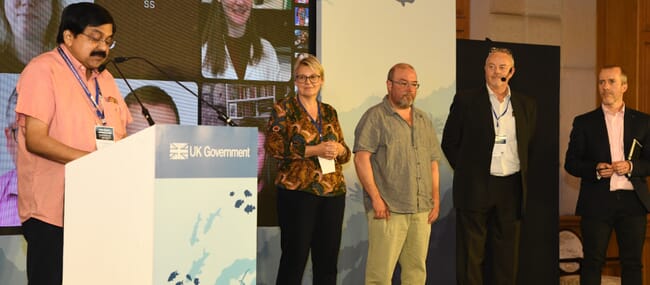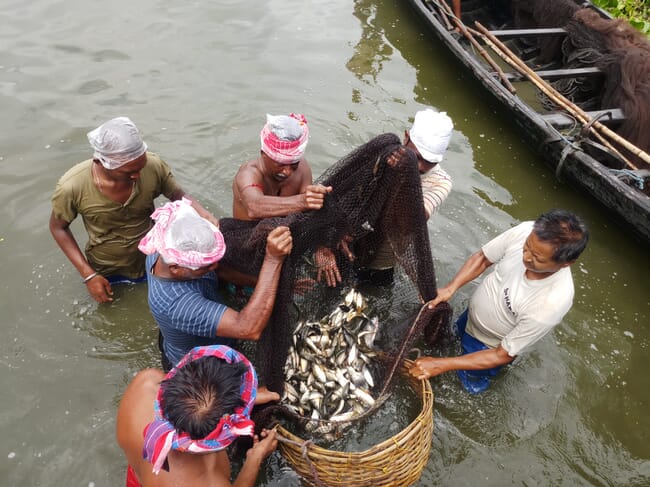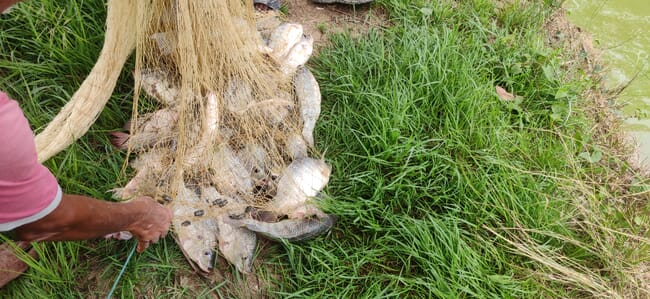
Adopting a One Health approach means that in addition to boosting overall aquaculture production, the industry will work to achieve optimum health for people, aquatic animals and the environment
Fishery scientists and experts from India and the United Kingdom are calling for an Indo-UK partnership to achieve a One Health Aquaculture concept in India. The approach, which is a mainstay of veterinary science, means achieving optimal health of the people, aquatic animals and plants and the environment.
Throwing light on the concept at an Indo-UK joint workshop held in Kochi, experts said that while focusing on boosting production to meet growing seafood demand, it is equally important to improve the health of all involved in the value chain of the aquatic food sector.
The workshop, which welcomed nearly 50 scientists from India and the UK and had papers presented from Dr Pramod Kumar Pandey, Dr P Krishnan, Prof David Bass and Dr Toms C Joseph, was jointly organised by the Centre for Environment, Fisheries and Aquaculture Science (CEFAS) of the UK government Department for Environment, Food and Rural Affairs and the ICAR-Central Marine Fisheries Research Institute (CMFRI).
Indo-UK partnership
Funded by the Ocean Country Partnership Programme (OCPP) of the UK Government’s Blue Planet Fund, the meeting also called for Indo-UK partnership to facilitate research collaboration helping to improve safe and sustainable aquaculture production in India. This would help to support adoption of a sustainable seafood practices, reducing the risk of negative impacts from unsustainable activities and subsequently improve the livelihoods, environments and economies of the country.

CMFRI director Gopalakrishnan suggested creating a national level agency to coordinate a One Health approach for Indian aquaculture © Gurvinder Singh
Speaking at the workshop, Sally Taylor from the British High Commission said a higher-level UK-India One Health partnership would set stage for the integration of the aquatic food system to One Health concept thereby addressing emerging realities and concerns at global level.
CMFRI director Dr A Gopalakrishnan said there are mechanisms that orient Indian aquaculture towards the One Health paradigm like National Surveillance Programme for Aquatic Animal Diseases (NSPAAD), Indian Network for Fisheries and Animal Antimicrobial Resistance (INFAAR), All India Network Project on Fish Health and the Consortia Research Platform on Vaccine and Diagnostics. However, he underscored the need for creating a national level agency to coordinate such different fragmented efforts.
Aqua doctors
Referring to the increased disease risks involved in the aquaculture, Dr C Ramachandran, principal scientist of the CMFRI said that India needs to appoint aqua doctors to prevent abuse of chemicals like antibiotics in aquaculture. “Collaborative R&D efforts are required for revival and market integration of traditional fish farming systems such as pokkali farming under the One Health lens”, he said.

From blockchain to policy concepts
The workshop also suggested novel strategies like using blockchain to track fish production from farm to table – improving the quality and transparency of the fish. Attendees also learned that the initial steps in achieving the One Health concept for India’s aquatic food sector would come from the policy space. Policy interventions could help disseminate and manage genetically improved fish varieties and restrict the use of drugs in human health and medicines used for veterinary, agriculture and aquaculture.




